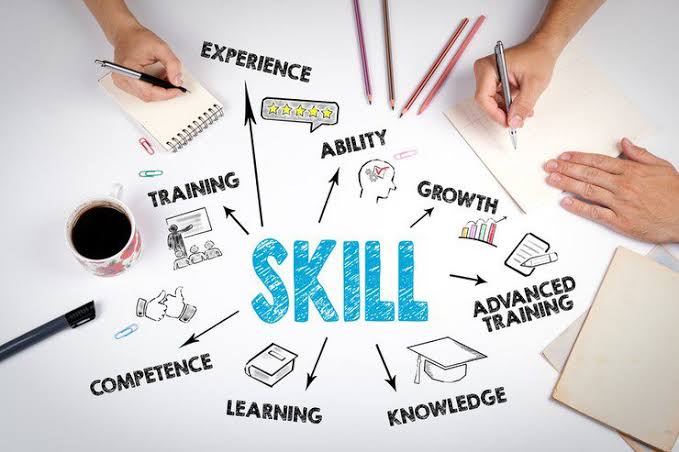The inclusion of soft skills in Nigerian education is no longer a matter of choice but of urgency.
For a long time, the Nigerian educational system has prioritised technical knowledge and academic success, giving particular weight to subjects like science, math, and English. As of June 2025, it is becoming increasingly clear that soft skills are equally important in preparing students for the demands of contemporary life and the changing labour market, even though these are unquestionably important.
Being knowledgeable is no longer enough in the knowledge-driven, globally interconnected economy of today; students also need to be flexible, emotionally intelligent, communicative, and cooperative. These are the fundamental elements of soft skills, and their applicability in the Nigerian educational system is now more important than ever.
Comprehending Soft Skills and Their Elements
Soft skills are a collection of non-technical aptitudes that impact how people approach their work, solve problems, control their emotions, and engage with others. Communication, emotional intelligence, teamwork, critical thinking, time management, leadership, flexibility, and conflict resolution are some of these.
Soft skills necessitate continuous personal development and real-world, practical application, in contrast to hard skills, which are frequently taught through lectures and textbooks. Nigeria's young population, high unemployment rate, and the evolving nature of work due to digital transformation make these skills even more necessary. Candidates with interpersonal skills, problem-solving abilities, and emotional intelligence are becoming more and more valued by employers than those with merely academic credentials.
Nigerian Education's Present Soft Skills Situation
Soft skill development has historically received little attention in Nigerian curricula. Written tests and rote memorisation are the primary methods used to evaluate students, which leaves little opportunity for the growth of critical thinking, communication, or teamwork. There are few opportunities to implement interactive and experiential learning strategies that promote the development of soft skills in classrooms with overcrowded seating arrangements and underfunded teachers.
Nonetheless, attempts to rectify this imbalance have been made in recent years. In collaboration with international development agencies, groups like the Nigerian Educational Research and Development Council (NERDC) have started to update the curriculum to incorporate elements of civic education, entrepreneurship, and life skills.
Soft Skills' Impact on Employability
The disconnect between academic credentials and employability is one of the biggest issues Nigerian graduates face. Despite having degrees, employers frequently lament that recent hires lack the fundamental professional and interpersonal skills needed in the workplace. High graduate unemployment rates have been exacerbated by this mismatch.
By equipping students to handle the intricacies of contemporary work environments, soft skills help close this gap. In industries like finance, healthcare, technology, and education, effective communication, problem-solving, and teamwork are critical.
Furthermore, the ability to self-manage and communicate virtually is becoming more and more important as remote work becomes more prevalent in Nigeria, particularly among freelancers and gig workers. Students will be better equipped to enter the workforce with confidence if soft skills are incorporated into the Ngerian educational process.
Improving Leadership and Personal Growth
Soft skills are crucial for community leadership and personal development in addition to professional success. People who possess these abilities are better able to navigate social challenges and form wholesome relationships. Promoting emotional intelligence and respect for one another from an early age is essential for maintaining national unity in a multicultural nation like Nigeria, where socioeconomic, religious, and ethnic tensions can affect daily interactions.
Additionally, students who possess soft skills have a higher chance of becoming successful community leaders. They are more adept at handling duties, motivating people, and settling disputes. These qualities are especially crucial as Nigeria seeks to produce a new generation of morally upright and forward-thinking leaders who can propel development in a variety of fields.
Including Soft Skills in the Curriculum
Soft skills must be purposefully incorporated into the curriculum and pedagogy in order to be taught in Nigerian schools. In addition to subject-matter training, teachers also need to receive coaching, facilitation, and mentoring. Group projects, discussions, role-playing, and community-based learning should all be promoted in the classroom. Additionally, evaluations ought to incorporate reflective journals, peer reviews, and oral presentations in addition to written exams.
These techniques give students the chance to hone and exhibit their social and cognitive abilities in a controlled setting. Training in soft skills can also be scaled through the use of digital learning platforms. Students' problem-solving and decision-making skills can be enhanced by exposing them to real-world scenarios through educational apps, interactive games, and online simulations.
Participation of the Government and Stakeholders
The Nigerian government must take the initiative and update educational standards and policies to make the development of soft skills a national priority. To advance a cohesive approach, federal and state ministries of education should collaborate with employers, civil society, schools, and foreign partners.
The inclusion of soft skills in education can be further encouraged by national competitions that reward creativity and leadership, teacher capacity-building initiatives, and public awareness campaigns. Involving the private sector is also crucial. Businesses and educational institutions can work together to offer career readiness programs, internships, and mentorship that expose students to interpersonal dynamics and workplace expectations.
Considering The Future
It is impossible to overestimate the significance of soft skills in Nigerian education given the world's ongoing, unprecedented rate of change. These abilities are an essential supplement to academic knowledge, not a substitute.
They enable students to apply their knowledge in practical, impactful ways and adapt to the unpredictability of the modern world. Long-term growth in Nigeria will rely not only on the technical prowess of its youth but also on their capacity for collaborative work, effective communication, and empathetic leadership. One of the most effective investments the nation can make in its future is to incorporate soft skills into the educational system.
